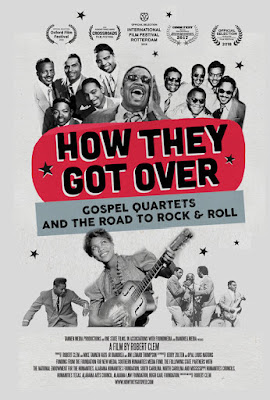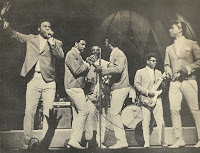There would be no rock & roll without “Rock Me.” You could say that satanic rock owes its existence to the Church. Indeed, Elvis Presley always acknowledged Sister Rosetta Tharpe’s influence on his music. Tharpe was a pretty big name already, even before he copied her act. Yet, it was the success of those who came before her who made gospel music a viable career opportunity for the musicians (primarily vocalists) whose oral history informs Robert Clem’s documentary How They Got Over, which opens tomorrow in Los Angeles.
Unlike other gospel docs (like Rejoice and Shout), Got Over does not go all the way back to the roots of gospel and Thomas A. Dorsey. He basically starts immediately post-war, when there were little job prospects for blacks in the Jim Crow South. Life and entertainment almost entirely revolved around the Church, where touring gospel artists might make gas money to the next town if they were okay, but could build a following if they had talent.
Although Clem covers Sister Rosetta and some of the women’s gospel ensembles, he deliberately focuses on the male harmony singers, who followed the lead of the original Golden Gate Quartet. Among those groups, he largely spotlights the Dixie Hummingbirds, thanks to original member Ira Tucker, whose commentary helps drive the film. Probably, the next most prominent group would Clarence Fountain and the Blind Boys of Alabama, which makes sense given their recognition beyond the gospel world.
Clem’s narrower focus arguably serves the film well. Instead of trying to provide an authoritative treatment (the kind likely to fail due to its omissions, like Ken Burns’ Jazz), he concentrates on how these groups struggled to make it in the early music business, or “how they got over.” In the process, he includes a number of vintage performances, all of which are really stirring stuff. Of course, there is social and historical context too, but Clem clearly doesn’t think he needs to justify the music’s importance. Wisely, he often lets it speak for itself.
The music selections are indeed well-chosen and the archival photos and images are often eerily evocative. Clem’s filmmaking approach is pretty straightforward, because he trusts his material. Anyone with an interest in gospel specifically and 20th Century American popular music in general should appreciate the songs and resilience of the artists he documents. Very highly recommended, How We Got Over opens tomorrow (10/29) at the Laemmle Royal.

